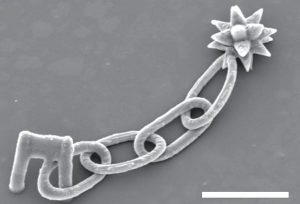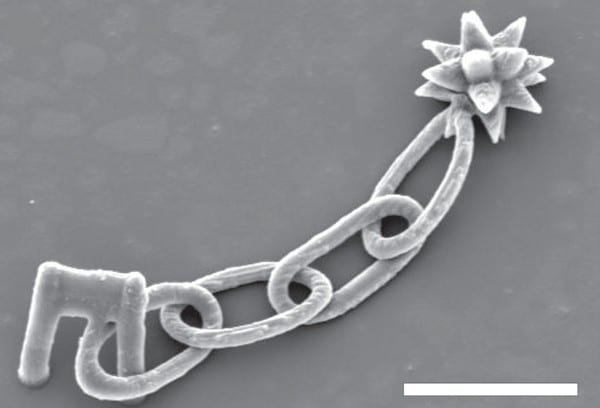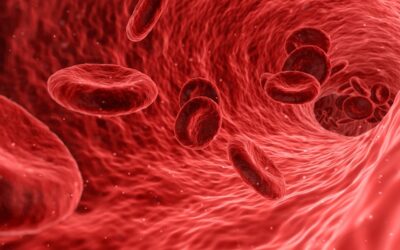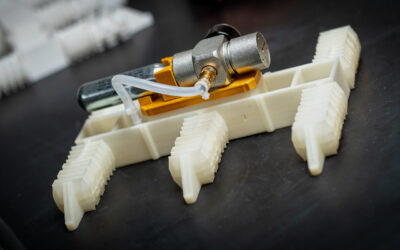Multiphoton lithography (MPL) is a highly versatile strategy for creating 3D microscale objects with complex geometrical arrangements. Of the various chemistries used to produce solid forms in MPL, protein photocrosslinking has been of particular value in biological applications, yielding materials with high porosity, tunable elasticity, and a diverse set of chemical and biochemical properties.Unfortunately, the potential for object drift, and consequent distortion, during this direct-write process has required that microforms be constructed in integral contact with an immobile surface, precluding fabrication of protein-based objects that retain rotational and translational degrees of freedom.

A BSAmicrostructure (modelled on a medieval morningstar) constructed through the new protogel multiphoton lithography technique.
Now, in new work published by researchers at The University of Texas, the development of a high-viscosity protein-based reagent, “protogel”, has been reported. Protogel can be used to fabricate complex 3D microstructures that are not adhered to a surface, including chains of Möbius strips, paddlewheels, and unconstrained (free-floating) probes for bacterial motility. The use of protogels as a reagent for MPL greatly extends the geometric possibilities for biological micro-objects, and as such, opens opportunities for a range of innovative tools, especially in the area of biomedical research, and the group anticipate that these materials will be rapidly integrated into strategies to control and assess cellular microenvironments.

















